#turkish actors latest news
Text
According to this article:
The Black Flag over Razavi Shrine in Mashhad, Khorasan province, Iran was raised in mourning, not vengeance.
Kim Jong Un did not make a statement blaming Biden
The Turkish President did not say he would intervene in the war.
The Israeli military did NOT make a social media post confirming a bombing of a hospital in Gaza. The Israeli military’s press office doesn’t use its own logo on its actual social media accounts, unlike the fake account.
Qatar’s emir did not threaten to cut off the world’s natural gas supply if Israel doesn’t stop bombing Gaza.
The video which shows a BBC News report confirming Ukraine provided weapons to Hamas is fabricated.
The video of a young actor being filmed lying in a pool of fake blood which supposedly shows propaganda being created for use in the Israel-Hamas war is actually behind-the-scenes footage from the making of “Empty Place,” a short film focused on the story of Ahmad Manasra. It is not propaganda created by either Hamas or the IDF.
Nimrod Aloni, a top general in the Israeli army, was NOT captured by Hamas militants during the Oct. 7 incursion into southern Israeli towns near the Gaza Strip. He's still going into work.
Two videos show Russian President Vladimir Putin warning the U.S. to “stay away” from the latest Israel-Hamas war -- these were actually footage of Putin speaking about the war in Ukraine, and have nothing to do with this conflict.
3 notes
·
View notes
Text
Many of us are still shocked with the images and destruction produced by the earthquake in Turkey and Syria, and the number of victims.
Besides being shocked some people want to help in any way they can, but maybe don't know how or to whom they can make a donation.
So, I have decided to share a few sites that could aid.
I've seen some Turkish actors raising internacional awareness about the earthquake and sharing this link with informations in English:
instagram
A Brazilian professor who I know and has lived in Turkey has been sharing many news about the earthquake and the situation there and has indicated these sites
instagram
This one https://molhamteam.com/en/campaigns/439 and this one
And if you're Brazilian you can always donate to Médicos sem fronteiras/MSF and other NGOs that work with humanitarian aid, like UNICEF, and have sites in Portuguese.
12 notes
·
View notes
Text
Listed: Kid Millions and Sarah Bernstein

Photo by Caleb Bryant Miller
Kid Millions and Sarah Bernstein both have long CVs in experimental music, Millions as the drummer for Oneida and Man Forever and Bernstein as an avant garde composer and performer with the VEER Quartet, the avant-jazz Sarah Bernstein Quartet, and solo as Exolinger. They’ve been improvising together for roughly a decade, building mesmerizing sonic architectures out of free-form drumming, wild violin pyrotechnics and cryptic spoken word. Of their latest, Live at Forest Park, Margaret Welsh writes, “Bernstein and Colpitts weave sound together into an unsettling fever dream-like warp, growing larger and smaller. All you can do is lay back and surrender to the waves.” Here are some things that inspire the two.
Kid Millions
Billy Harper Quintet — In Europe (Soul Note)
youtube
While I admire and enjoy all of the Quintet albums I’ve heard, this particular one captures something ineffable and transcendent. The Quintet’s personnel changes throughout Harper’s career but this particular session has the tunes, the passion, the reaching and the constant surprises that make it my most listened to album in the last ten years. Fred Hersch is especially sympathetic and powerful on this too. I really want to see this group ASAP. Billy Harper is still playing!
Pete La Roca — Basra (Blue Note)
youtube
La Roca is a drummer who is unappreciated but his playing and compositions stand out. This album gets the slight nod over the legendary Turkish Women at the Bath because it was recorded well. He’s in the same league as Elvin and also wrote some incredible tunes.
George Adams & Don Pullen Quartet — City Gates (Timeless) (but any record is cool)
youtube
I’m leaning on big tenor sounds these days, and George Adams stands in the same universe as Billy Harper because he plays the range of the instrument — there are gorgeous melodies set alongside blistering free blasts. Don Pullen is incredible as well. Near the end of his life he started to write more songs with hooks, but he shreds like Cecil Taylor. I’m digging the stuff that straddles the line between songs and free these days.
Henry Threadgill with Brent Hayes Edwards — Easily Slip Into Another World (memoir)
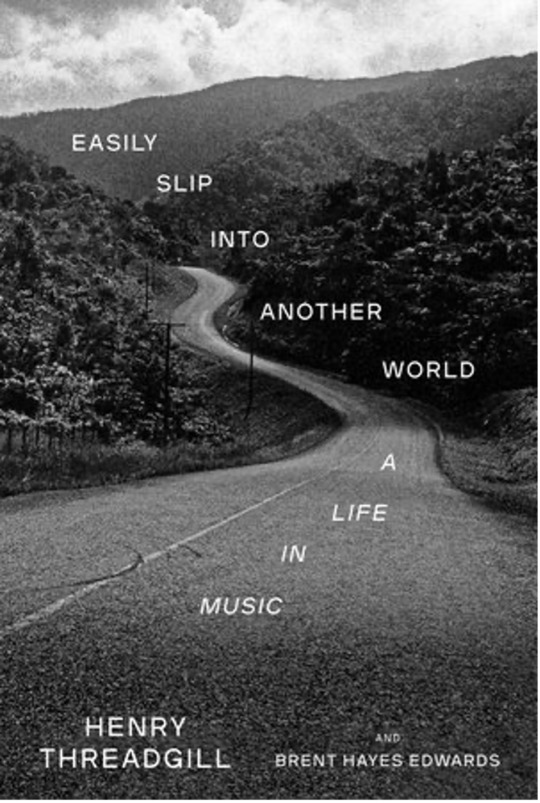
This is a brand-new book, and I’m finding lots of inspiration and great advice within the pages. His discussion about how young musicians need to find their way within the tradition, among their peers, and on their own terms applies to all traditions, rock included. In order to really engage with the music, you have to play all the time, with other people. You have to play covers, and you have to play in front of audiences. And you need to be fired. I certainly have!
Marcus Gilmore
youtube
Such an incredible, deep, drummer. You should go see him ASAP!
Sarah Bernstein
Music/poetry films I like:
When It Rains — Charles Burnett (1995)
youtube
Charles Burnett’s work speaks to me as a whole. The films I’ve seen slip into a continuous flow of poetic story/documentary. When It Rains is a 13-minute short film that takes place on a festive New Years Day, but January’s rent needs to be paid. Musicians are among the characters and sound, and it plays like a jazz improvisation. A particular highlight is seeing instrument-maker Juno Lewis on-screen playing his double bell trumpet. The story’s ending will have vinyl collectors smiling.
The Connection — Shirley Clarke (1961)
youtube
Before discovering this movie, I knew director Shirley Clarke from her later film "Ornette: Made in America," also a must-see. The Connection is a film version of Jack Gelber’s play for the burgeoning Living Theatre. Most of the actors from the stage play, and all the musicians, are also in the film. The band is swinging: Freddie Redd composer/pianist, Jackie McLean alto sax, Michael Mattos bass, Larry Ritchie drums. The musicians also act in the story, and even the turntable — playing Charlie Parker’s Marmaduke — provides a key recurring motif in the film.
Poetry In Motion — Ron Mann (1982)
vimeo
Poetry in Motion, By Ron Mann from bob stein on Vimeo.
The other movies on this list are ones I’ve seen relatively recently, but Poetry In Motion I watched in an art-house cinema as a teenager, and it had a big impact on me. The documentary shows 40 poets and performers, including Jayne Cortez, Dianne Di Prima, Helen Adam, William S. Burroughs, Amiri Baraka, Allen Ginsburg, Jim Carroll, John Cage, Robert Creeley, Miguel Algarin, to name a few! Also check out Ron Mann’s first feature film: Imagine The Sound (1981), a superb profile of Cecil Taylor, Archie Shepp, Bill Dixon and Paul Bley.
Desolation Center — Stuart Swezey (2018)
youtube
The concert footage is so good. Highlights are Einsturzende Neubauten and Survival Research Labs literally blowing up the desert in Joshua Tree. Also Sonic Youth, Minute Men, Swans, all in DIY festivals and shows taking place in outdoor remote locations in 1980’s SoCal.
Amazing Grace — Alan Elliott/Sydney Pollack (2018)
youtube
Aretha Franklin and choir hold a live concert recording session of her gospel album Amazing Grace over two days in 1972. This is not a documentary with talking heads or explanation, rather the action is all in the music and spirit. Aretha Franklin’s genius and deep interaction with the listeners and choir is riveting and inspiring, even more so with repeat viewing.
#dusted magazine#listed#kid millions#sarah bernstein#billy harper quintet#pete la roca#george adams and don pullen quartet#henry threadgill#marcus gilmore#charles burnett#shirley clarke#ron mann#stuart swezey#alan elliott#sydney pollack
3 notes
·
View notes
Text
Latest Cinema Film Collection
The Library of Congress has curated this online collection of movies deemed culturally, historically, or aesthetically significant. They represent the diversity of American cinema and speak to our national identity. layarcinema
Movies in the Collection range from acclaimed independent dramas to sweeping epics and everything in between. The selections highlight a variety of themes and subjects that reflect the many facets of American life, from the heroic efforts of soldiers on the battlefield to the quest for justice in a Paris women’s hospital.
With the writers and actors strikes resolved, this month brings a few more prestige productions to theaters. But the biggest new release is a smart and truly spectacular-looking sci-fi action thriller that takes on another kind of bad guy: artificial intelligence.
Turkish filmmaker Nuri Bilge Ceylan is one of the world’s finest directors, and this drama demonstrates why. Based on a Chekhov play and Dostoyevsky’s Brothers Karamazov, it traces the power struggles in a class-based society in Anatolia with grace and wit. Its lengthy running time is justified by the complexity of its characters and the depth of its ideas, making it well worth a watch.
This month’s picks include a French drama that’s as much about the human soul as it is about an escaped convict, a period piece with Jean-Louis Trintignant at his best, and a Bernardo Bertolucci period piece that combines the themes of music and art to explore a tumultuous marriage. We’ve also included a documentary about the AIDS crisis that’s as compelling as it is illuminating, and a thriller about the dark side of a celebrity culture that’s as gripping as it is disturbing.
The collection includes more than 25,000 film titles, dating back to 1894. The earliest films were shot on nitrate, but most of the prints in the collection have been transferred to safety stock. This allows us to offer our patrons the highest quality viewing experience available.
Our film preservation and restoration work is made possible by our generous donors and supporters. Their gifts of money, materials and expertise help keep these remarkable works in the hands of their viewers for years to come.
As one of the largest and most significant film archives in the country, we are an international center for the preservation, study and exhibition of moving images. The collection contains more than 25,000 film titles, with a special strength in American independent and avant-garde cinema and its precursors found in classic European and Soviet cinema.
The Collection offers an outstanding opportunity to learn more about the history of film and its impact on society, culture and economy. Our collections are accessed by more than 100,000 students, teachers, scholars and members of the public each year. They are also used by filmmakers, broadcasters and other institutions for educational and research purposes. The Collection is primarily composed of films and videotapes, but also includes some print documents and sound recordings. The Archive’s holdings are augmented by the materials held by other institutions, such as the Library of Congress (including the William Schaefer ledger, which covers studio inception to 1968), the University of Wisconsin at Madison, and the DEFA Film Library at the University of Massachusetts Amherst.
1 note
·
View note
Text
Jafar Panahi’s Ingenious, Tragic “No Bears” Is a Formalist Triumph
In his latest film, the now jailed director captures the daily absurdities of Iranian lives ruled by surveillance and superstition.
By Richard Brody
December 21, 2022
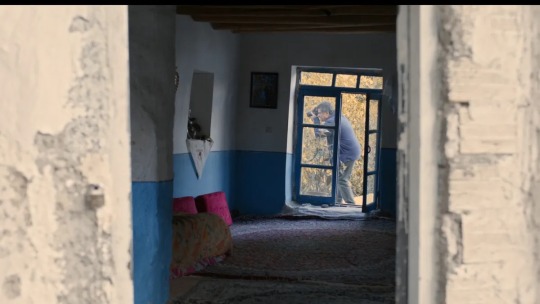
In Jafar Panahi’s “No Bears,” the director plays a version of himself, exposing the absurdities and terrors of daily existence in Iran under the regime’s misrule.Photograph courtesy Sideshow and Janus Films
Formalism gets a bum rap. No style carries intrinsic virtue, but formalism, at its best, is a powerful expression of political crisis, embodying realities too extreme for plain narration. In particular, the formalism of reflexive cinema, which exposes the artifices of fiction, seems made to call out the fabrications of a censorious regime’s stage-managed public images. Soon after the 1979 Islamic Revolution, reflexive metafictions became a specialty of the Iranian cinema, led by the late Abbas Kiarostami and followed by his onetime assistant and longtime associate Jafar Panahi. (In Panahi’s 1997 film, “The Mirror,” a child actress declares, “I’m not acting anymore,” and takes her head scarf off—reflexivity doesn’t get much more explicit than that.)
In recent years, Panahi has had even more radical kinds of reflexivity thrust upon him by the regime itself: in 2010, after his arrest on political charges, he was banned from making films, speaking to the press, and travelling outside the country. He was also given a six-year prison sentence, which was suspended, and he was instead put under house arrest. He responded with a film called “This Is Not a Film,” made mostly in his Tehran apartment, in which he diagrams and describes and even acts out a movie that he wouldn’t be able to make with cast and crew. His movies since then have involved similar ruses. In “Taxi,” from 2015, he plays himself as a cabdriver and builds the action with passengers whom he records on what is ostensibly his security camera. (This July, amid an ongoing crackdown on filmmakers and other artists, Panahi was arrested again; he’s currently incarcerated, sentenced to serve out his original six-year prison term.)
Panahi’s latest film, “No Bears,” which played at the New York Film Festival in October and opens Friday at Film Forum, is his most daring, most intricate, and most defiant metafiction, and its very complexity is a crucial aspect of its political fury. The movie is composed of three main strands, each of which has its own component threads; in their particulars and taken together, they evoke the grinding difficulties of social life—and the paranoid labyrinth of inner life—under a repressive regime. In “No Bears,” Panahi plays a filmmaker with his own name (we’ll call the character “Jafar”), who has travelled from his home in Tehran to a village near the border with Turkey in order to direct a film. In depicting the absurd constraints that he himself faces, Panahi exposes the absurdities of daily existence in Iran and the pathologies that afflict the population as a result of its misrule. He also displays, with a scathing severity, the guilt and the complicity that he bears in making movies and enlisting the participation—witting or unwitting, intended or incidental—of others. He carries, however unjustly, the mark of dissidence and (political) crime, and this turns out to be as contagious as it is dangerous.
Though Jafar, who faces legal troubles akin to those of the real-life Panahi, is making a movie, he may not technically be violating a ban on filmmaking, because Jafar is not really directing. Rather, he’s tele-directing a crew and actors who are just over the border, in a Turkish town. From the little house that he’s renting, he watches, via Internet, on his laptop computer, the scenes as they’re being shot (on video), and he passes his comments along to his assistant, Reza (Reza Heydari), and to the actors, Zara (Mina Kavani) and Bakhtiar (Bakhtiyar Panjeei), a couple. The pair are enacting a drama that is also purportedly the real, present-tense story of their lives. They’re Iranians who are living in exile in Turkey and trying to get hold of stolen passports in order to make their way safely to Europe, but the effort to procure the precious documents (and to film their procurement) puts their relationship to a severe test.
Meanwhile, in the village where Jafar is staying, he gets involved in drama of his own—or, rather, of his temporary neighbors. In his few days there, he gets curious about village life, with its elaborate and highly codified traditions, many of which have to do with marriages and their arrangements. He delegates his temporary landlord, a ditchdigger named Ghanbar (Vahid Mobasheri), to video-record a premarital ceremony, and, while it’s taking place, he photographs some residents. Soon, he’s accused of having taken a picture of an illicit couple—a woman named Gozal (Darya Alei) and a man named Soldooz (Amir Davari)—who want to marry despite her having been promised, at birth (yes, at birth), to another man, Yaghoub (Javad Siyahi). Yaghoub and his relatives demand the photo as proof of the illicit relationship; after Jafar denies its existence, he’s summoned by the village chief (Naser Hashemi), confronted by an angry mob, and forced to swear to his story before the village elders. (Gozal fearfully begs Jafar not to disclose any such photo, and Yaghoub is preparing to take matters violently into his own hands.)
The third strand of the tangled tale is focussed on Jafar’s own legal issues. He’s visited by Reza, the bearer of a legitimate passport, who comes and goes freely between Iran and Turkey. Reza brings him a hard drive containing the film’s footage and guides him on a lonely smugglers’ road to a hilltop from which they can see, from not-so-afar, the Turkish city where Jafar’s movie is being filmed—and where, with a single step across an invisible line, Jafar can defy his ban on international travel, enter Turkey, and, if he so chooses, live beyond the reach of the Iranian government.
There’s palpable joy in the sheer ingenuity of the movie’s conception and in the realization of it. Panahi goes at his subjects with an irrepressible cinematic verve that extends from the story and the dialogue to the performances and the very presences of the actors. (Some are professionals, others are nonprofessionals recruited on location.) Yet for all the immediacy, the spontaneity, the vitality of the moment-to-moment experience, each moment also seems perched on the precipice of tragedy—and that grim instability is built into the movie’s style. Many of the film’s most dramatic sequences are night scenes filmed with daringly little light, as in remote settings illuminated solely by the interior light of Jafar’s car, the screen on his cell phone, or the full moon, or on desolate dirt roads lit only by headlights. Much is done in secret: important things are hard to see and the effort of discernment in high-stakes situations is crucial to the drama. Panahi relies on long takes without longueurs, many executed using pan shots that unite multiple fields of action and a varied array of characters in a single sweep, others featuring fixed-frame compositions in which the action is often multiplied by the presence of interested observers contemplating the dramatic events and extending them into an extra spatial and psychological dimension.
The main observer is Jafar himself. The camera often assumes his point of view—his troubling discoveries and piercing revelations. As an actor, Panahi delivers a performance that incarnates the weight of the character’s observations; he remains stoic and impassive, even when his voice flashes with indignation. Jafar is the Heisenbergian observer whose presence, with or without cameras, perturbs his surroundings and adds to the troubles of those around him. As he makes his way through the village, he unleashes a Pigpen-like whirlwind of chaos, because what he’s really observing, more than any individuals, is the invisible net of unbearable surveillance in which they’re caught—and which tightens with fear, in menacing cruelty, when it’s in danger of being exposed.
The material particulars of that surveillance are filmed with a wise and wild discernment. Jafar is dissuaded from climbing to a roof for a cell-phone signal, lest neighbors think he’s “peeping.” Ghanbar, the landlord, turns the camera off when a female cousin of his is speaking, for fear that he’ll record her saying “a bad word.” Near the border, the savvy Reza warns Jafar of “ten eyes” that are watching. As the situation in the village deteriorates, owing to the illicit romance of which Jafar may or may not have photographic evidence, the national Revolutionary Guard makes threats and demands. Moreover, some villagers are caught in a fake economy dominated by smuggling and black marketeering, and this adds another layer of fear of discovery. Amid such ambient daily terror, Jafar’s glances into the rearview mirror while driving take on a Hitchcockian frenzy. (The story of the Turkish-based actors and couple Zara and Bakhtiar, in their emotional and spiritual limbo of exile, is held in the same grid of oppression and fear; Zara gives voice to a traumatic backstory of jail and torture, prior to exile.)
The intertwined elements of Iran’s ubiquitous surveillance are presented, in equal measure, as oppressive law and irrational tradition. One of the village’s few bold freethinkers sums up the movie in a single line: “Town people have problems with authorities; we have problems with superstition.” Jafar, a town person, comes into conflict with the villagers over superstition, while bringing the authorities’ sharpened attention to bear on them because of his own legal trouble. He’s not the cause of tragedy—he didn’t bring the illicit couple together, he didn’t urge Zara and Bakhtiar to travel under false pretenses. But, in his effort to bear witness, he himself becomes a tragic figure, implicated in the very web of surveillance that also targets him. The furious core of his tragic knowledge is that the main targets of oppressive religious rule, whether governmental or traditional, are women; the main purpose of enforced dogma is to deprive women of their autonomy, especially their sexual freedom. In the face of such enormity, of such outrage, Jafar’s—rather, Panahi’s—stoic gaze takes on a blank bewilderment as he stares out to nowhere, in an absolute existential void. ♦
Richard Brody began writing for The New Yorker in 1999. He writes about movies in his blog, The Front Row. He is the author of “Everything Is Cinema: The Working Life of Jean-Luc Godard.”
#The New Yorker#Richard Brody#Iranian Cinema#Iran#Cinema#Jafar Panahi#Abbas Kiarostami#Jafar Panahi’s Ingenious#No Bears
0 notes
Text
Leyla Hazal Kaya (born 1 October 1990) is a Turkish actress. She is best known for playing the role of Nihal Ziyagil in the TV series Aşk-ı Memnu, Feriha Sarrafoglu, Adını Feriha Koydum (2011–2012) and Filiz in Bizim Hikaye (inspired by the British TV show Shameless) (2017–2019).
Kaya started her acting career in 2006 with TV series Genco. She played the character of Özge (Gülay Erkaya). She had guest roles in fantasy series Acemi Cadı of Turkish version "Sabrina Teenage Witch", popular series Sıla, "Taşların Sırrı". In 2008, Kaya played Nihal Ziyagil in a modern-day adaptation of the novel Aşk-ı Memnu, written by Halit Ziya Uşaklıgil. She had her cinematic debut in Selçuk Aydemir's movie Çalgı Çengi in 2011. At the same time she took lessons from Ayla Algan in drama. She then joined Ümit Çırak Modern Acting Techniques Workshop and took acting lessons from Ümit Çırak himself. Kaya played in the first two seasons of the TV series Adını Feriha Koydum (2011) as the lead character, Feriha Sarrafoğlu. She played the role of a porter's daughter trapped between two lives and falls in love with the most popular student at her university, a rich and handsome boy "Emir Sarrafoğlu" (Çağatay Ulusoy). The series had one of the highest TV ratings in Turkey. Later, together with her mother Ayşegül Kaya, she appeared in the commercials for Bingo. In the late 2012, she left the cast of Adını Feriha Koydum and starred in a new series called Son Yaz Balkanlar 1912, portraying the character Emine. However, the series ended after a few episodes due to low ratings. She later appeared in the 2013 series A.Ş.K and played the character of Azra Özak, a tennis coach. That series also ended after 13 episodes. In 2015 she appeared in Maral: En Güzel Hikayem, opposite Aras Bulut İynemli. She played the leading character Maral Erdem. Her latest TV show is Bizim Hikaye (in English: Our Story), which is the Turkish adaptation of the American TV series Shameless. In this TV show Kaya plays "Filiz Elibol Aktan", opposite actor Burak Deniz. As of 2021, she shares the leading roles with Bugra Gulsoy and Ozan Dolunay in the TV series Misafir, an adaptation of the Japanese TV series Oasis. Since 2010, she appears as Behzat's dead daughter "Berna" in some episodes and film of hit crime series Behzat Ç.
https://instagram.com/hazalkaya?igshid=OGQ2MjdiOTE=





0 notes
Text
Burak Deniz, coming with new projects!
Burak Deniz, coming with new projects!
Good news arrives from actor Burak Deniz for his fans! He has revealed that the release date of the new project in which the actor has a leading role has been announced. The handsome star of Turkish series, in this project will share the role of protagonist with actress Serenay Sarıkaya. Speaking about this project, the actor said that it is predicted to be one of the most ambitious digital…
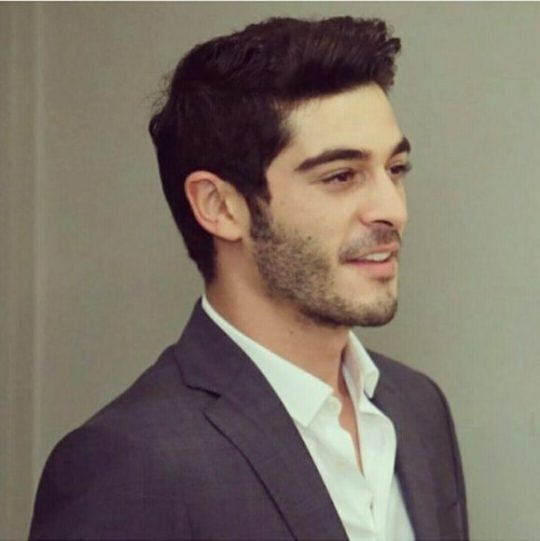
View On WordPress
#burak deniz#burak deniz life#burak deniz new project#burak deniz new series#burak deniz series#Turkish actors#turkish actors latest news#turkish celebrities#turkish new series
3 notes
·
View notes
Text
Aamir Khan’s meeting with Turkey First Lady draws celeb flak
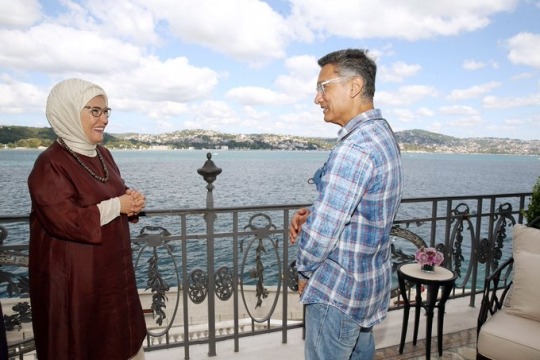
Bollywood actor Aamir Khan is facing flak not only from common people but also from certain celebrities on social media after his photos of meeting First Lady of Turkey Emine Erdogan went viral.
The actor is in Turkey to shoot portions of his upcoming film, “Laal Singh Chaddha”.
Taking a sarcastic jibe at Aamir Khan, BJP Rajya Sabha MP Subramanian Swamy tweeted from his verified account on Monday: “So I have been proven right in classifying Aamir Khan as one of the 3 Khan Musketeers?”
Filmmaker Vivek Agnihotri took to his verified Twitter account to ask: “Should Amit Khan have met the caliphate leader? What do you think?”
Agnihotri misspelt the actor’s name, but the fact that he was referring to Aamir Khan when he wrote Amit Khan is evident from the fact that his post is in reaction to a tweet that Erdogan had earlier shared, along with pictures of her meeting Aamir, on her verified account.
Reacting to a news piece talking about the actor’s meeting with the First lady of Turkey, Agnihotri wrote in a separate tweet: “Is this hypocrisy? What do you think?”
#Bollywood actor Aamir Khan#First Lady of Turkey Emine Erdogan#Aamir upcoming film Laal Singh Chaddha#celebrities on social media#Turkish president Recep Tayyip Erdogan#Bollywood News#Latest Bhaskarlive News#english news with bhaskarlive#Bhaskarlive news
0 notes
Text
The Dizi Tag Game
Rules: Answer the questions and then tag people you want to participate! (Also tag it #The Dizi Tag Game so we can see everyone’s lists)
Tagged by: @thescorpioracer thank you!!
1. Your first dizi and how you discovered turkish dramas
Medcezir. It was back in 2014, I encountered this gif of yamira on the internet. After that I searched for other gifs and watched random scenes without subs (I didn't understand anything). Only in 2015 I decided to look for the show to watch with subs, and finally watched it.
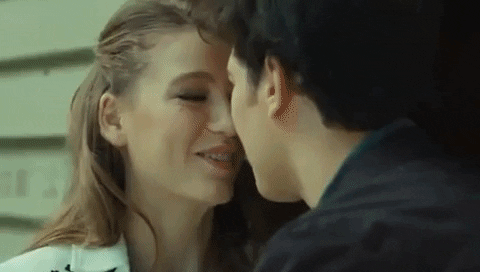
2. Shows you're currently watching
I'm not watching anything right now. I'm giving a break from dizis, but I'll come back.
3. Your favorite genre of dizi (romcom, mafia show, contemporary drama, historical/fantasy, etc.)
Romcom. I love comedy and I love romance, so that's the perfect genre for me. But a show that has a cute pairing and a story that revolves around them it catches me. Drama is not my favorite genre bc I always lose excitement for the show after some time, but I tend to give it a try. I haven't tried any other genre, and I don't intend to.
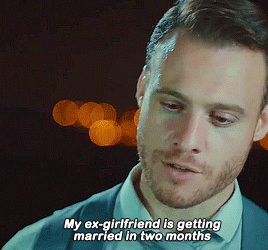
4. The show you rewatched (parts of) the most
Medcezir. It's the first one, so it's the one I'm always coming back bc it's special. But Love 101 comes right after, it was the first dizi I watched after a long time, and it was in the beginning of the pandemic so it's kinda special to me too. It was like an awakening.
5. Favorite turkish actor and actress (feel free to pick multiples)
Serenay Sarıkaya, Çağatay Ulusoy, Hazar Ergüçlü, Demet Özdemir, Engin Öztürk, İpek Filiz Yazıcı, Kubilay Aka, Alperen Duymaz (although I haven't watched anything from him, every gif and video I see from his latest shows he's just funny and cute, maybe one day I'll watch something from him).
6. A show you quit before finishing
Kara Para Aşk, İçerde, Arıza (I tried but I have a problem with mafia shows). And Erkenci Kuş and Sen Çal Kapımı. One day I'll come back to EK, but SÇK I just can't anymore.

7. Favorite songs you have discovered in dizis
Bana Öyle Bakma from Teoman I discovered in Bana Sevmeyi Anlat; Kanatlarım var Ruhumda from Nil Karaibrahimgil, Isyan from Halil Sezai and Aşk Kırıntıları by Teoman I heard in Medcezir; Resmen Aşığım from Nil I know from SÇK.
8. The show whose plot disappointed you the most
Sen Çal Kapımı, after Serkan's memory loss I just couldn't continue. And Her Yerde Sen, everyone says they love this show but the way Demir handled their relationship problems by simply locking her up until she accepted listening to him was just toxic for me, and I just don't understand how nobody sees it. I just finished bc when I couldn't stand anymore it was the second to last ep already.
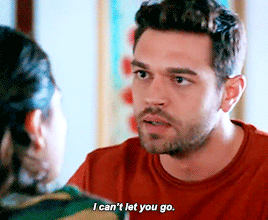
9. A show that was cancelled too soon/ran too long
Fortunately for me I never watched a dizi that was cancelled abruptly. As for the ones that ran too long, EK and SÇK. SÇK should have ended before all the memory loss thing.
10. Favorite characters
Mira (Medcezir); Sanem (EK); Sinan, Osman and Işık (Love 101).
11. Your favorite romantic pairings
Yamira (Medcezir), they don't do romantic scenes like theirs anymore, it's amazing the amount of times they make out in this dizi. Seriously. And they're so cute and good with each other, I love them; DicBar (Menajerimi Ara, I never watched this dizi but every gif and scene I see they're just perfect); Sinan and Işık (Love 101)
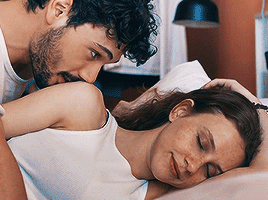
12. Favorite side characters
CeyCey (EK); Melo (SÇK); Mert and Eylül (Medcezir); Mühtar and Turan, only when he was with Mühtar (50m2)

13. Best kiss
It's Yamira's of course. It was hard to pick just one bc, like I said before, it's just too much making out. But after thinking about it, it has to be this one. They were both mad at each other so I was not expecting that kiss.

But there's another kiss I can't forget. Sinan and Işık are simply beautiful together.
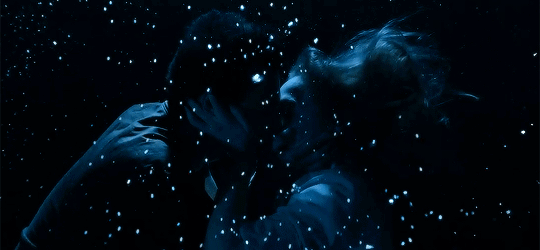
14. An underrated show more people should watch
Love 101. I just feel that this show deserves more love than it has.
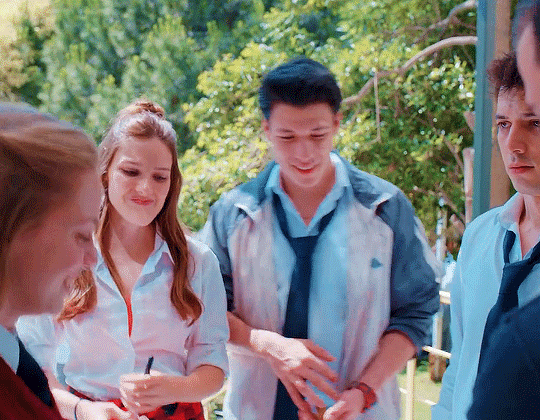
15. A show everyone loves that you aren't interested
Her Yerde Sen. I've already said my reasons, basically Demir was toxic and didn't respected Selin's choices. He treated her like a child at times, locking her up and not giving her time to digest the way he lied to her, and it bothered me, although she really behaved like a baby sometimes (which bothered me same). I couldn't ship them and sometimes I just watched bc of the side characters. Burak and Eylül were waaaay better together.
Other than that, I don't feel like watching Çukur, Hercai, Kiralık Aşk and many others. I have a friend who's watching KA and she's loving it, but I just don't feel it, you know.
16. A show you want to recomend right now
Medcezir. Just watch it if you like drama and romance. The first season is good but the second manages to make it better, especially the second half of it. Mira and Yaman's relationship just evolves to a new level, they trust each other and take care of each other, it's just beautiful (and most importantly, through most of the series they are together, they broke up twice in 77 eps, and the second time they spent like idk 10 ep apart, but when they get back together they don't separate anymore). And Serenay and Çağatay are just amazing in this dizi, they're great actors. And I recomend Love 101 too. It's funny, dramatic, romantic. The pace of the story is great, the relationships in this show evolve beautifully and we really get to root for the characters.
17. The next show on your list
The summer dizis: Cam Tavanlar, Baht Oyunu and Kazara Aşk. And I'm still waiting for Ada Masalı's teaser, but I'm planning on watching it.
Tagging: anyone who wants to do it! C'mon guys, it's fun!!
#wow this post just sounds like Medcezir propaganda#the dizi tag game#medcezir#love 101#aşk 101#her yerde sen
68 notes
·
View notes
Text
The Dizi Tag Game
Rules: Answer the questions and then tag people you want to participate! (Also tag it #The Dizi Tag Game so we can see everyone’s lists)
Tagged by: @thescorpioracer
1. Your first dizi & how you discovered Turkish dramas: it was a sad spring of 2019 and I stumbled upon a set of Erkenci Kuş gifs, and the chemistry between two main characters made me curious. At first I was obsessed with the show and was watching it non stop (I barely slept), then I lost my interest a little bit. And although I was seriously hooked on the episodes that were released up to March, 2019, the end of season 1 and season 2 were rather disappointing.
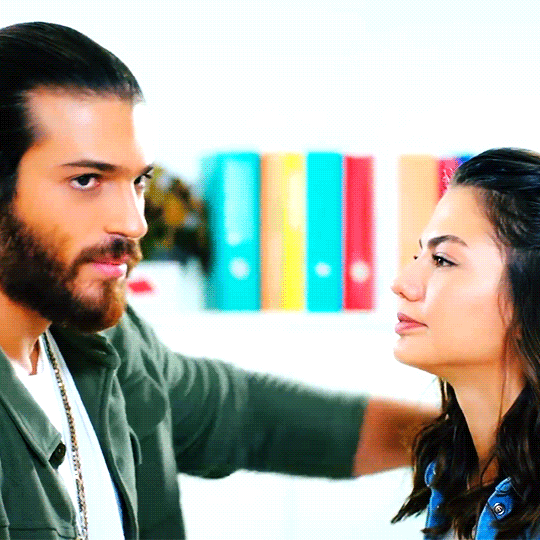
2. Show(s) you’re currently watching: I'm currently rewatching Afili Aşk and as of current shows: Hercai and Sen Çal Kapımı (although I haven't watched 2 latest episodes)

3. Your favorite genre of dizi (romcom, mafia show, contemporary drama, historical/fantasy, etc.): I guess romcom and drama. I like beautiful views, stylish outfits, yearning, enemies to lovers and working at the same place tropes, drama and intrigues.
4. The show you rewatch (parts of) the most: definitely Kiralik Aşk. I also rewatched Erkenci Kuş when I was still on the peak of my obsession but I couldn't watch season 2 cause it's just bad

5. Favorite Turkish actor and actress (feel free to pick multiples): Elçin Sangu, Burcu Özberk, Demet Özdemir, Kerem Bürsin, İbrahim Çelikkol, Çağlar Ertuğrul
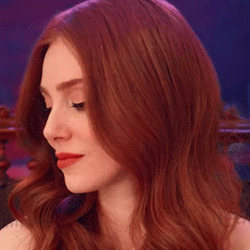


6. A show you quit before finishing: Kara Sevda - I think I watched 10 episodes or something like that but got bored (also I knew how the show would end, and the ending wasn't worth it). Kuzey Güney - I stopped in the middle of the first episode cause I felt too depressed just by watching it. Kiraz Mevsemi - also stopped mid first episode cause I wasn't really entertained
7. Favorite song(s) you’ve discovered in dizis:
Mehmet Güreli - Kimse Bilmez
Demet Evgar - Farkemeden
Nil Karaibrahimgil - Resmen Aşığım
Yalin - Deva Bize Sevişler
Ufuk Beydemir - Yüreğimdesin
Aydilge - Sorma
basically almost all songs from Erkenci Kuş and Kiralik Aşk
8. The show whose plot disappointed you the most: the second part of Erkenci Kuş, Serkan’s memory loss (Sen Çal Kapımı), whatever is happening now in Hercai. Also can we talk about the last episode of Dolunay cause I got beef with it. It’s like a 2-hour music show with 15 minutes worth of scenes???
9. A show that was cancelled too soon / ran too long: Hercai - it's just insane, my brain hurts every time I watch a new episode, so I think it's high time they finish it cause the plot lines are just too absurd already. I know I should stop watching it but I invested too much time in this dizi so I gotta finish it
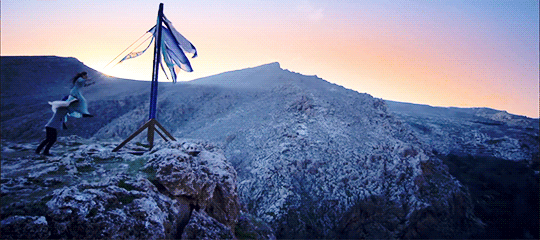
10. Favorite Character(s): Eda Yildiz (Sen Çal Kapımı), Defne Topal (KIralik Aşk), Zeynep Tunç, Veli Cevher (Çarpışma) and definitely more
11. Your favorite romantic pairing(s): Eda x Serkan (Sen Çal Kapımı), Can x Sanem (Erkenci Kuş), Ayse x Kerem (Afili Aşk), Selin x Demir (Her Yerde Sen), Asli x Ferhat (Siyah Beyaz Ask), Cemre x Kerem (Çarpışma), Defne x Omer (KIralik Aşk)

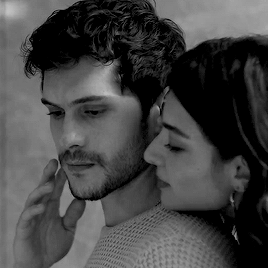
12. Favorite side character(s): Samet (Afili Aşk), Bulut (Dolunay), Harun - when he was just introduced (Hercai), Veli (Çarpışma), Sultan (Hercai), that goat from Her Yerde Sen
13. Best kiss: Can and Sanem on the theatre balcony in episode 11 (Erkenci Kuş), Reyyan and Miran in episode 19 (Hercai)


14. An underrated show more people should watch: I feel like Her Yerde Sen deserves more love
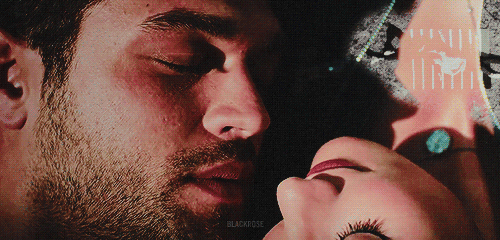
15. A show everyone loves that you aren’t interested in: Kara Sevda
16. A show you want to recommend right now: that's a tough one cause I can't really think of a dizi, which never disappointed me, and I don't really recommend anything if I'm not 100% sure. But I think Kiralik Aşk and Her Yerde Sen are good choices
17. The next show on your list: Kuzgun, Alev Alev, maybe Teşkilat (but who knows which obsession my brain will pick next and I gotta admit after making this post I kinda wanna rewatch Her Yerde Sen)
tagging: @baharsahin @carogables @fillabook @vforeverithing @ohsexyhalder I’m not sure who else out of my mutuals watches dizi, so you are welcome to do it if you want to ;)
#the dizi tag game#tag game#save talks#kiralık aşk#afili aşk#erkenci kuş#her yerde sen#hercai#çarpışma#sen çal kapımı
88 notes
·
View notes
Text
Do not go gently...
I was re-reading my old posts on livejournal from when TVD went down a dark path and I had to give it up, and its remarkable how closely my disappointment and slow leaving of the fandom parallels what I'm experiencing with SCK.
First it was losing touch with the characters. Characters who we used to practically live in their head became completely cut off and suddenly, we knew nothing about their motivations or their thoughts. Their decisions suddenly started to be controlled entirely by the Plot--longstanding character traits were destroyed or disappeared seemingly overnight. Relationships and elements of those relationships which had long been established disappeared or were purposefully disposed of. It was like the characters were no longer driving the show, but were reduced to Plot Devices that could be moved at will.
Then came the change in acting. I found an entire post I wrote about Nina Dobrev's "Elena Face" she had been doing and it's eerily reminiscent of some of the "Serkan Face" comments I've made recently. It's like the actors don't really know what is going on with their characters so they sort of default to this face that is bored, bland, and vaguely irritated.
Then came the predictability of plots and tropes. Look, neither SCK nor TVD was particularly grounding breaking in their writing, but the early episodes did do some surprising things with characters, and plots moved as a reasonable clip. And then both started to drag. Things like lies and secrets piled up for no real reason other than Plot. People died or survived or reacted depending on what the Plot told them to do. Previously smart characters suddenly lost their ability to think or reason, and it was clear all their Plots were based off nothing more than a need to advance a Plot.
And then we have our main couple. Love them or hate them Stefan and Elena were the main couple of TVD, and the first two seasons were spend firming establishing this. Like SCK, the main couple faced challenges together, and even when they were apart they were together. There were insecurities, sure, but it was made clear time and again they were it for each other. They had long conversations, they supported each other, and even in their worst moments they were there for each other. And when they encountered problems, they worked through them and didn't deal with those same problems again. And then came the dark times. Limited screentime together, no talking or connections, symbols of love being destroyed, moments being erased or replaced, and then the dreaded Other moved in and suddenly our soulmates weren't, well, soulmates any more.
And it was all, inevitably, in the service of Plot. To extend a thing which maybe just should have ended. And it sucks, especially when you are deep the in fandom. It's more than just entertainment, it's ritual and community and bonding. It's getting excited with other fans, coming up with theories, excitedly examining plots, making fanfic and gifs. It's being a part of something a little bit more, and as the show declines, so does the fandom. You lose the passion to write about characters who no longer inspire, the plots are so obvious you have nothing to speculate or wonder about, and analyzing it becomes an exercise in pain. I found a post I wrote about realizing I forgot the latest episode of TVD was on (when I hadn't missed a live airing in a months) and how weird it felt to realize I didn't care. Realizing I didn't care hurt almost worst than the not caring, bc it meant I was losing something I loved, something that had been so important. Like SCK, TVD hit at a time of extreme stress and change for me, and it helped me get through a weird time. Losing it, and the community I had with it, was hard.
SCK is ending. Whether or not they manage to drop this next stupid plot in an episode or not, the writing is on the wall. The show will never be the same again, and the magic that brought us all together is gone. It's hard, and it hurts, and this one is going to take a while to get over. I can watch old TVD episodes now without pain, and I think in time I will be able to do the same with SCK too. But for now, saying farewell to a show and a fandom that I loved, and that was there for so many of us in a rough time, is going to be hard. It's not easy to let something you love like this go, even if it is only a Turkish romcom. But reading old TVD posts made me feel better. This isn't my first rodeo. I'm used to things going south. Most are a "fool me once" scenario and I'm done (see Endgame) but the slow death is almost harder. It's not a clean break, it's a slow decline, and it's hard. But I've met some amazing people and found new things to love through the course of this, and I'll be grateful for this Turkish romcom for giving me that. And I'll remain excited for anything Hande or Kerem do in the future.
#cool no more#sck#sen çal kapımı#fandom#it's always hard to lose a fandom#and a show or franchise that you love#the clean breaks are easier#when endgame came and was a awful and destroyed what i loved#it was easy to say#but i wasn't really in the marvel fandom either#so simply saying 'never again' was a lot easier#it's harder like this#to watch every week and hope and wish#to watch everyone start to break#this one will hurt for a bit#but in the end i'll be okay#id say i'll never get sucked in a again#but who knows#maybe in the next ten years#tvd was 11/12 for me#so i'm right on schedule lol
66 notes
·
View notes
Text
Generation Z: Why Zawe Ashton is the breakout star of 2019
APRIL 21, 2019
Not so long ago, grief and self-doubt threatened to kill her career. Now Zawe Ashton – TV star, stage actress and author – is the breakout star of 2019.
Zawe Ashton bursts into the café where we’ve arranged to meet, just around the corner from the theatre in London’s West End where she’s starring in the hit revival of Harold Pinter’s classic play Betrayal. She’s ten minutes late and full of apologies. ‘I was in a Turkish bath and I fell asleep!’ she cries, pulling off her grey beanie hat. ‘I was lying on the hot marble slab and I was so exhausted, I just shut my eyes and I was out.’
It’s not surprising that Zawe (her name, pronounced ‘Zow-ee’, is Ugandan) is shattered: the past few months have been a whirlwind for the actress until now best known for playing maverick student Vod in Channel 4 sitcom Fresh Meat. So far this year she’s had stints in Los Angeles and at the Sundance Film Festival in Utah promoting her latest film Velvet Buzzsaw for Netflix. Returning to her native London, she had ‘one sleep’ before being plunged into rehearsals for Betrayal.
Now the show’s up and running, with rumours of a Broadway transfer. Zawe, 34, has been highly praised for her performance as Emma, the mother who has an affair with Jerry (Charlie Cox, star of Marvel’s Daredevil), the best friend of her husband Robert (Tom Hiddleston of The Night Manager fame). ‘The three of us are having the time of our lives,’ Zawe exclaims.
Tall, in black jeans and jumper, hair tumbling over her shoulders (‘I look rough as hell, I’m falling apart!’ she cries – a patent untruth), Zawe is hugely entertaining company: engaged, mildly hyper (‘I have a very short attention span’) and flamboyant. I have to interrupt to remind her we need to discuss her book Character Breakdown: ‘There’s so much going on, I keep forgetting the book!’ Zawe laughs.
Character Breakdown describes incidents in Zawe’s acting life, which began aged six, when she started after-school classes at the Anna Scher Theatre School. Based in North London, it wasn’t far from the house where she grew up the eldest of three children of teacher parents – Cockney Paul and Ugandan-born Victoria.
The book’s anecdotes are variously funny, insightful and decidedly shocking. I assume they are about Zawe, but it’s impossible to be sure, as the book reveals no specific names (of directors, projects she’s worked on or fellow actors) and is written more like a novel than an autobiography. ‘If people call my book an actor’s memoir I will be very upset,’ Zawe says. ‘I can’t bear anything too literal, so it has elements of truth and elements of fiction sitting side by side.’
Though her tone is darkly funny, many of her anecdotes make her profession sound – frankly – grim. Girls at her comprehensive who had seen her on television – she won her first BBC role in The Demon Headmaster aged 11 – bullied her so badly she had to switch school. Older actress friends tell her about work drying up once they’ve passed 30 and had children.
The book’s protagonist is required to negotiate nudity clauses (she agrees her areola but not her nipple will be on screen) and sent to auditions where she’s asked if she has a skimpier outfit and judged (and often rejected) for being ‘too tall, too fat, too brown, too quirky, not talented, too talented…’ Both on and off-set she’s groped and abused by other actors and men claiming to want to cast her.
For years, Zawe says she’d shrugged off such incidents as part and parcel of a woman’s life. ‘They were things that you dismiss, because you don’t want to be deemed hysterical,’ she says. But now that Hollywood’s started calling out such behaviour, her account packs a timely punch. ‘It took me a while to write the book, then suddenly #MeToo and #TimesUp were happening and it took on a new resonance,’ she says.
Some of her experiences sound so nightmarish I ask why she’s still in the profession. ‘Why become a mother?’ Zawe retorts. ‘Childbirth really hurts, it’s hard, but you still do it. I’ve always acted, it’s my passion and belief system. Anyway, I did try to quit when it became too much.’
That was two years ago, when Zawe was at a low point after her maternal grandfather had died: ‘I just thought, my personality doesn’t suit this any more. I’m an extremely sensitive person, so why am I doing this job where I have to be hyper-aware of my face and body and get all this criticism and love from total strangers?’
But just then, as is so often the way, she won her part in Velvet Buzzsaw, a Netflix-streamed horror/satire film set in an art gallery, directed by Dan Gilroy (Nightcrawler) and co-starring his wife Rene Russo (The Thomas Crown Affair). ‘Rene and Dan and I became best friends and I just felt so fulfilled and valued,’ she smiles.
There have been many other high points in Zawe’s career, not least her time in Fresh Meat, the breakout show for many stars, including comedian Jack Whitehall. ‘We all grew up together: it was like a second coming-of-age after university, a last hurrah, reliving that studenty joie de vivre,’ Zawe says. Of all its characters, Zawe’s foul-mouthed, hard-living Vod was the standout. ‘I could never have imagined the love people had for Vod and it was because she didn’t give any f****, which was how I was at the time,’ she says. Zawe had a lot of input into the character, deciding to shave Vod’s head and choosing her trademark clumsy gait and growly voice. ‘I said, “I want her to be messy and shambolic, because the coolest people don’t know they’re cool – they are just living their lives.”’
That philosophy of not worrying about other people’s opinions has served Zawe well, not least in Betrayal, where she has the potentially tricky task of portraying a married woman having an affair: ‘I’m not really concerned about being liked on stage – I’m a bit more concerned about it off stage,’ she says. ‘Emma’s a very real woman, who is nailing her job, has two kids, a marriage and also happens to have an extramarital relationship… Everything about that to me says human – there’s nothing I judge about her.’
Complex characters such as Emma are, Zawe claims, what audiences crave and new streaming services such as Netflix are providing. In contrast, she says established networks such as the BBC need ‘to up their game’, even though they’re also under pressure to get large viewing figures by appealing to the broadest audience. She’s speaking from experience, having last autumn appeared in the BBC drama Wanderlust, playing a teacher who starts an affair with a colleague (Steven Mackintosh) after he and his wife (Toni Collette) decide to have an open relationship. The show received mixed reviews and wasn’t recommissioned.
‘The subject matter of Wanderlust p***ed a lot of people off, but it made a huge impact and had a committed audience, even though it wasn’t wide. It didn’t get another series because it didn’t deliver on figures and that’s sad to me,’ Zawe says. ‘Without laying any blame, I think BBC audiences like what they like and they didn’t warm to the idea of a married woman having extramarital sex, even though her husband was doing the same thing.’
Working in such an unpredictable profession, Zawe’s hugely grateful to her supportive parents: ‘I’m in a very privileged situation because they believed in me becoming an artist when I know so many people whose parents are, like, “Get a degree, go to law school, become a doctor, make life easy for yourself.”’ Her mother hasn’t yet read Character Breakdown (‘I’m reading bits of it to her’), but her father has – praising her writing style. It must have been hard for him learning about his daughter’s travails. ‘I think he’s impressed by my resilience,’ Zawe says.
Hugely proud of her mixed-race heritage, she has frequently visited her grandparents in Uganda. ‘I loved seeing them and hearing stories about their childhoods, but I equally love hearing about the experiences of my dad’s father, who was very much London-based. You have to engage with all your lineage and hold it as a precious diamond.’
Today, her family spend a lot of time together at the house in Margate, Kent, which Zawe recently started renting, attracted by the town’s artistic scene. ‘And there’s the sea – being close to nature is something that, like lots of Londoners, I really needed in my life.’ Yet, her run in Betrayal means right now she can only spend Sundays there, returning to her home in London on Mondays. ‘So I’m kind of flushing all my money down the toilet, paying for two places to live,’ Zawe laughs. ‘But it’s worth it because I’m at a point where I’m working out where I’m supposed to be – and you can’t work it out without trying it.’
It goes without saying that Zawe’s a feminist who thinks many women – not just actresses – find themselves playing roles foisted upon them by society. ‘The first time I lived with a partner I became obsessed with a bin I ordered from Ebay to the point where I dreamed about it. I was so fixated on making my home lovely and cosy,’ she laughs. ‘I thought, “I’m trying to live out a housewife persona, and it’s not a natural fit.” But where has this pressure come from to be like that? It’s the voices of all our mothers and grandmothers and great-grandmothers telling us we have to be a certain way, but now, suddenly all that is up for negotiation.’
Zawe won’t say if she currently has a partner or not, but concedes. ‘I’d love to have children, but there’s time… Why are we told there’s no time?’ I say that the much quoted statistic stating female fertility rapidly declines after 35 is based on 18th-century French birth records when women had the most basic healthcare, so bears little relevance to much better-nourished women today. ‘I was just talking to a friend about this!’ Zawe cries. ‘That blows my mind. People are trying to scare women with misinformation, to keep us out of the way at home, while men get on with their careers. But guess what? It’s not going to work any more… Women in their 30s and older are very much here and you’re not going to get rid of us.’
She giggles. ‘I have to say there’s something to be said for not having children – like falling asleep in the Turkish baths. My mum says, “You can tell you’re not a mother, doing things like that!” And compared to my friends with children, I have the life of Riley.’ For now, it would certainly seem to be the case.
Interview by Julia Llewellyn Smith
12 notes
·
View notes
Note
Hi, I have just started watching SCK and I am already obsessed with it! I hope you don't mind me asking you a few questions. The episodes are 2 hours 20 mins approx compared to US and UK shows, how do they manage to do that every week, it must be insane hours for them. Is this normal running time for Turkish dramas? Any idea when the season will close, I saw it mentioned that Saturdays episode will be the last for a month, how many episodes are there in a season?
Sorry another query. The American shows normally run for approx 8 months (with small breaks in between) then are on hiatus for 4 months, is it the same with Turkish TV industry What was the relevance of Efe collapsing the roof on his friends house, was it to bring out the Eda story of her parents into the public, is this something that will be playing out later, when Grandma arrives. The arrival of the new woman is so cliche, Blindspot bombed when they did that, I guess it's the format!
Hello there. I also enjoy Blindspot! But I still haven’t watched the final season, I need to get on that, maybe over the holidays.
Happy to answer your questions as best I can. This is my first Turkish dizi, so I’ve been learning along the way, all to say I’m by no means an expert.
The episodes are 2 hours 20 mins approx compared to US and UK shows, how do they manage to do that every week,
They shoot at a breakneck pace. The cast and crew post a ton on social and if you follow any of that on instagram and twitter you’ll see that they’re constantly shooting until 2 or 3 in the morning. Kerem and Hande recently answered an ask in an IGLive about how long it takes to film one episode. They said 4-6 days. Kerem was a bit tetchy about it towards TPTB, so they obviously feel the strain on how much they’re working and producing. In the US, a standard network hour-long drama takes 8+1 days to shoot (meaning 8 full days and 1 of second unit shooting usually done while they’re shooting another episode) and that’s for about 44 minutes of content.
So how do they do it? Just from watching the show I’ve observed a few things. First, while the episodes are almost 3 times as long, the scenes are also much longer than you’d find in a US produced show. So for instance a scene in a US show might take 2 minutes of screentime, in SCK that same scene might be 6-8 minutes. But it doesn’t take 3-4x longer to shoot to get those 6-8 minutes because it’s all one set up and all one scene.
Additionally, from what I can tell, everything is shot on location, no sound stages, and they have a finite number of locations per episode. So they’ll go in and shoot all the scenes at ArtLife for that ep in one set up, all at Serkan’s house in one set up, all at Eda’s house in one set up, all at Aydan’s house in one set up, and then all at the speciality location(s) for that episode in one set up. So they’re not doing huge set ups to get one shot or one scene like you see on uber high-production value US shows. Also everything is mostly dialogue based, very little action, no effects, so it’s pretty straight forward. No time consuming stunts.
Also I don’t think the actors get near as many takes as they do on US-based shows. I think they get the scene and move on, no re-dos to improve one emotional reaction and the like. Thankfully the actors are great. Usually the production value is pretty decent despite this, there have been a few locations where I’ve noticed bad lighting or cramped camera angles, where they are obviously just making due, and that would not fly on a US network show.
it must be insane hours for them. Is this normal running time for Turkish dramas?
Yes, that seems to be the standard timing format for shows in Turkey. What’s crazy to me is that they are shooting episodes only like a week out from the air date. That is next level pressure.
Any idea when the season will close, I saw it mentioned that Saturdays episode will be the last for a month, how many episodes are there in a season?
I’d seen speculation about that, but then I heard they were only breaking for a week. I haven’t seen anything official. The latest news I’ve seen is that they are trying to shoot episode 24 before the break. In Turkey, the big holiday is New Years, so I think episode 24 may air on December 26, then no episode on Jan 2nd, then back on Jan 9th. As a note, I’d also heard there would be no ep on Dec 26th and then ep 24 airing on Jan 2nd, so we’ll see how it turns out. In this scenario the cast/crew will only get like 4 days off.That sucks for them, I was hoping they were actually going to get at least two weeks off before coming back. However, we’ll see, it all seems oddly speculative.
Sorry another query. The American shows normally run for approx 8 months (with small breaks in between) then are on hiatus for 4 months, is it the same with Turkish TV industry
It seems to vary. I talked a little bit about it in this post.
What was the relevance of Efe collapsing the roof on his friends house, was it to bring out the Eda story of her parents into the public, is this something that will be playing out later, when Grandma arrives.
Efe did not mean to cause that level of destruction. He was so panicked after it happened, because that wasn’t his intention. As for his motives, remember earlier that episode he had told Serkan he wanted to review Serkan’s drawings of the house and Serkan was like, “HARD PASS.” Efe was pissed, so I think he was trying to teach Serkan a lesson, that he’s not infallible and that if he had consulted with his partner and let his partner see the drawings it probably wouldn’t have happened (you know second set of eyes.) I think Efe hoped it would make Serkan lose confidence and as a by product Efe would gain trust and be let deeper into ArtLife and the holding to further Grandma’s plan. However, it blew up in Efe’s face because he ironically didn’t know what he was doing, made a change too extreme and the roof fully collapsed, instead of just causing a smaller issue. Eda’s unwavering belief in her man led her to uncovering that it wasn’t Serkan’s fault and Efe wound up losing his reputation all over Europe. Oops.
The arrival of the new woman is so cliche, Blindspot bombed when they did that, I guess it's the format!
Some might describe most things about this show as cliche, it’s unapologetically about the tropes. I love that about it, it’s like a giant AU fanfic come to life. This woman is another device to push Serkan and Eda towards each other and to give us some fiery Eda jealousy. Serkan only has eyes for Eda, there is no “triangle” or third-party love interest. Just a lady with some psychological issues zeroing in on our hero, she will be dealt with soon enough.
I’m glad you’re enjoying the show!
10 notes
·
View notes
Text
No Bears review – Jafar Panahi’s piercingly self-aware study of film-making and fear
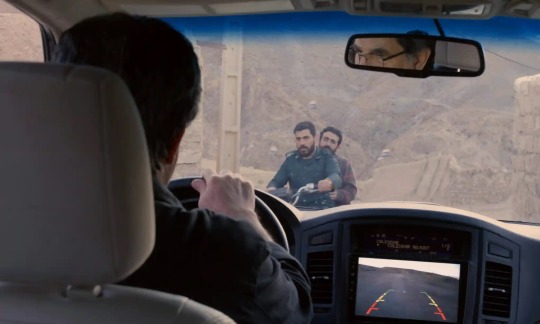
‘A profoundly humane endeavour’: Jafar Panahi behind the wheel in No Bears.
The Iranian director, who was imprisoned in July, crafts a complex meditation on artistic creativity and invisible borders

Mark Kermode, Observer film critic
@KermodeMovie
Sun 13 Nov 2022 | 03.00 EST
Earlier this year, the Iranian auteur Jafar Panahi was detained and ordered to serve a six-year prison sentence – the latest politically motivated attempt to silence an artist who has been banned from making movies since 2010. Despite the ban, Panahi has remained a creative thorn in the side of the Iranian authorities. His provocatively entitled This Is Not a Movie (2011) was smuggled out of Iran on a USB drive hidden inside a cake and premiered to great acclaim at Cannes. His next two features, Closed Curtain (2013) and Taxi Tehran (2015), earned him a Silver and Golden Bear respectively at the Berlin film festival, while 3 Faces (2018) won best screenplay at Cannes.
This latest stripped-down work from the world’s most quietly defiant cineaste has already (deservedly) picked up the special jury prize at Venice and the award for cinematic bravery at the Chicago international film festival. Meanwhile, in Miami, where the director was given the film festival’s Precious Gem award, an audio message recorded in prison found Panahi wryly declaring: “I wish that I could make films instead of receiving awards” because “I have dreams that go beyond all the awards in the world.” And what dreams they are!
Given the circumstances of its creation, it’s no surprise that Panahi’s recent output has returned obsessively and self-reflexively to the subject of film-making itself. Here, for example, he once again plays a version of himself – a film-maker directing his latest feature by remote control. His new movie is being shot in Turkey and presents a close-to-life account of a couple, Zara (Mina Kavani) and Bakhtiar (Bakhtiar Panjei), who are facing separation as they attempt to escape to a new life in Europe. Panahi, who cannot leave Iran, is directing them over the web, via a computer screen. But rather than doing so from Tehran, where he had a half-decent internet connection, he has instead rented a room in a remote village near the border, placing him physically closer to the action, but also conjuring a creative barrier as his phone signal constantly drops in and out in almost slapstick fashion.
"Panahi retains the wit and humility to question his art with remarkable candour and self-deprecation."
When assistant director Reza (Reza Heydari) visits Panahi, the pair take a surreally tinged night trip to the Turkish border (a haunting no man’s land peopled by smugglers in speeding vehicles), and he invites the film-maker to step across the invisible line that divides his country from its neighbour. But Panahi has become embroiled in his own domestic drama, his camera having inadvertently drawn him into a dispute (“there will be blood”) between two men, both of whom are attempting to claim the hand of a local girl. Meanwhile, the actors in Turkey are starting to doubt the integrity of their director, whose docudrama threatens to tear them apart in real life, creating two parallel love stories that eerily mirror and reflect each other’s sinister power struggles.
“What about the bears?” asks Panahi as he takes an evening walk to the outskirts of the village, en route to a meeting where he must answer the charge of having taken an incriminating photograph – a photograph he insists does not exist. “There are no bears,” replies his companion, who has previously assured this metropolitan incomer that while “town people have problems with authorities, we have problems with superstition”. It’s all just “nonsense, stories made up to scare us. Our fears empower others. No bears!”
It’s a cute titular exchange that pithily encapsulates the key themes of the drama: the conflation of modern authority and archaic superstition, the town-country divide, the power of storytelling, the oppressiveness of fear and the absurdity of dogma. These are intimate personal scenarios with wider political resonances that reverberate throughout Panahi’s filmography.
Yet No Bears is also a piercingly self-aware portrait of an artist who is not afraid to depict himself and his craft as aloof or insular. Despite all that he has faced, Panahi retains the wit and humility to hold himself accountable – to question his art with remarkable candour and self-deprecation. Filtering his immense contribution to cinema through a deceptively incidental lens, he once again reminds us that movie-making can be a profoundly humane endeavour; at once comedic, tragic and truthful.
#Iran#Cinema#Iranian CInema#The Guardian#Mark Kermode#Review#No Bears#جعفر پناهی#Jafar Panahi#Berlinale#خرس نیست#Reza Heydari#Bakhtiar Panjei#Mina Kavani#مینا خسروانی
0 notes
Text
Viri, Hugo and Dilan
@liftupyourhands brought up on twitter that Viri is now the William to Hugo’s Noora and Dilan’s Vilde. Like Vilde, Dilan showed interest in Viri and made his move first. And like Noora, Hugo has started bantering with Viri, this banter is clearly working for both of them, but Hugo has made his move behind Dilan’s back. So Hugo is essentially breaking bro code, and Viri is coming between two good friends. She clearly likes Hugo, or at least likes the banter, whereas she doesn’t have the same feelings for Dilan.
I love the idea of a Vilde (of Viri!) getting character development by finding herself in William’s place in a love triangle, BUT. I hate what this means for Dilan.
I’m going to try and explain what this potential love triangle means for every character in it:
HUGO: Hugo is most likely Viri’s endgame. Not just because he’s probably Magnus, but because as a result of his involvement in this love triangle, Hugo has finally gotten a birth date, a last name and his own instagram account. Hugo’s actor Álvaro Cobas’s interest in freestyling has also been incorporated into the character. So Hugo is now the third character whose actor’s interest in music has been made part of his character, after Tomy Aguilera’s Jorge and Nicole Wallace’s Nora.
Much like every other Magnus before him, Hugo has to deal with Viri being more interested in guys like Alejandro than guys like him. Viri sees him as the typical boy whose interests are gaming, football and now rapping. It’s up to Hugo to prove himself to be more than that, or at least to turn Viri on so hard she no longer cares Hugo isn’t an Alejandro.
Hugo gets an endgame, a larger role and character struggles out of this love triangle.
VIRI: I feel like most Vildes are highkey interested in sex and talk about it constantly, while Viri had remained something of an outlier in this aspect. It’s not just that she didn’t get to finish the job with Alejandro. Before she had to come clean about what had really happened, Viri described the event vaguely. While Viri has been romantically interested in Alejandro all this time, she hasn’t talked about sex (with him or another dude) as much or really at all. The last time before this episode that Viri showed an interest in the physical side of romance, was when she asked Cris if girls are better at sex. So, out of the gate, what Viri gets out of this love triangle is a new angle as a character. Viri can have sexual tension with characters!
But also, having Viri be the William of her own love triangle is galaxy-brained. However Viri handles this love triangle going forward will have repercussions for Hugo and Dilan’s friendship. Vilde never had that kind of power. She sort of settled for Magnus because he was cute, because he was nice to her and because the girls pretty much told her she needed dick, instead of being jealous of Chris and Kasper. In s1, Vilde wanted to be a romance heroine, but events led to Noora taking the place Vilde wanted for herself. Vilde never got to find out what it’s like to be the Noora and thus decide whether it really is nice to be in that position. However, Viri has the opportunity to know not what it’s like to be the Noora, but what it’s like to be the WILLIAM, the person who comes between two friends and prefers one over the other. Because she is a straight girl from an underprivileged family, the power dynamics between all three characters are different, but this love triangle should get Viri to think of herself and the people around her in a much different way.
DILAN: Okay, so for starters, we are halfway through s3 of Skam España and we don’t have a definite spelling for Dilan’s name. He’s Dilan in the episode credits and at least the latest chat about him, but he’s Dylan in the subtitles that Movistar+ offers on their platform (not the fanmade ones on youtube! The ones for Movistar+ subscribers).
We know Dilan isn’t Viri’s endgame for the simple reason that his romantic interest in Viri didn’t result in an instagram account of his own. And, because Skam España only adds characters to the profile page when they get an instagram, that means we don’t know his birthdate or his last names either.
And also, it is pretty fucking gross of Skam España to take the show’s only other regular character of color besides Amira, not give him any storylines until s3, and when he finally gets one, he’s second fiddle to a white character in a love triangle. in such a way that isn’t even really meant to develop his character (because we all know Hugo is the endgame), but rather to empower Viri, another white character. Will the writing develop Dilan beyond Lucas’ other funny friend? Will they even acknowledge that Dilan is a poc and where that leaves him not just societally, but also in terms of this specific love triangle? Or are they just... Going to throw in a few references to Ecuadorian food and act like they’ve done so much better by him than Skam did by Mahdi? (Not at all coincidentally, another character whose name still gets spelled as Madhi in some corners of fandom.)
So yeah, bring in this love triangle, but dude, I really hope the writers have anticipated all these questions. Because between this hot mess and fandom being 100% ready to do away with a role that was conceived for an actor of Turkish descent (Yousef) in favor of the whitest white dude in the world (Dani)... It doesn’t look awesome for men of color in Skam España.
112 notes
·
View notes